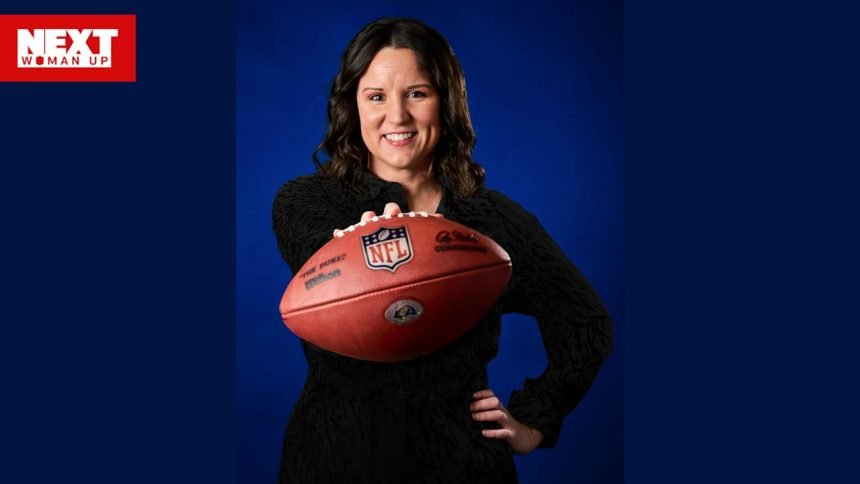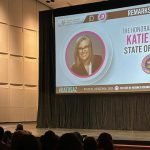How did you get your start in a career in football?
Sports have always been pivotal to who I am as a person. Growing up in St. Louis, I was a Rams fan with the Greatest Show on Turf. I played college soccer, which supported my education. When I graduated, I was on the science side of sports, but I shifted gears in 2010, enrolling in a masters of sports management program. It was during that time when I got an internship in ticket operations and service with the Rams, which was all completely new to me. I really enjoyed the behind-the-scenes work of distributing tickets, filling a stadium and everything that comes with it. I was also fortunate to engage with season-ticket holders and fans during that internship, watching the excitement and people bonded together on Sundays.
After that year-long internship, I was offered a position as ticket operations coordinator. The next goal for me was a career in suite services because I saw it as a unique intersection of operations and service. I tried to put myself around as many people as I could to learn and build relationships, and things evolved professionally for me.
Now as vice president of client services, what does your role entail?
I oversee both our member services program, which is inclusive of our club, reserve or premier members, and our suite services program, which involves our Rams suite owners who own annual leases. I also oversee our suite rental services for single-game experiences and game-day guest experience. We employ about 100 Rams ambassadors on game days, who are sprinkled throughout SoFi Stadium to make sure that our fan experience is seamless. It’s a complex building, so helping people find their seats or with anything else they might need is our main goal.
I also oversee renewal collections strategy for our memberships by creating new experiences, benefits and continuing to add value at each and every turn. We want to keep them connected to the team.
This is your 16th season working in the NFL. Sometimes your team wins the Super Bowl, sometimes it’s hiring a new head coach or has new star players. You’ve seen it all. When the team does have a trying season on the field, what kinds of challenges do you encounter?
We look at those as opportunities rather than challenges. We have been fortunate enough in Los Angeles to be successful on the field, which I do not take for granted because that wasn’t the case in the final years of being in St. Louis. The thing I learned very early during my time in St. Louis was you really need to invest in people. That’s treating people as individuals. They aren’t paychecks or numbers or another ticket distributed. It’s about how we can add that emotional piece because we can’t control what’s on the field. We have to create experiences to add value to the game. We’re at the forefront of trying to deliver those opportunities to our members first and foremost, because they are investing into us. I want to treat our members the same if we’re 17-0 or 0-17. If we’re fortunate enough to have playoff games, we have to make sure we are embracing that because those are memories that will stay with you forever.
That makes sense. So, what is the most challenging part of your job?
Constantly trying to re-evaluate and invent. Los Angeles is a very competitive market, and we’re competing for people’s discretionary income. They can spend with us or the Dodgers, Lakers or a million different things in L.A. There is so much to do here. Just because we introduce great things every year, we’re always looking at how to improve. That can get a little daunting because we rarely get much time to celebrate our successes. You’re always trying to one-up yourself. I try to instill in my team that we’re striving for improvement, not perfection because even though it was great once, we can’t sit idle.











